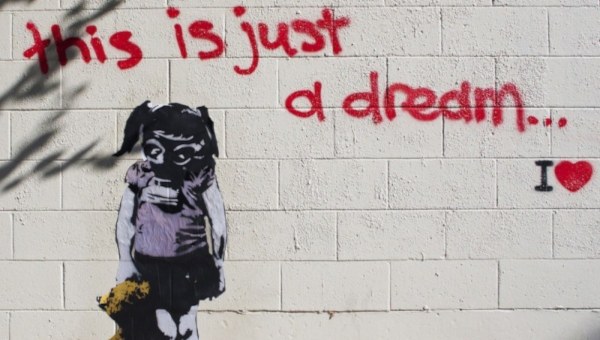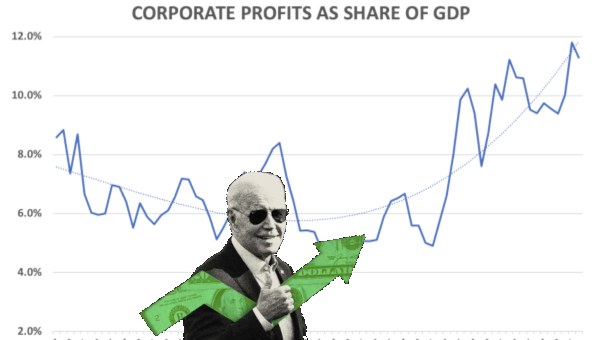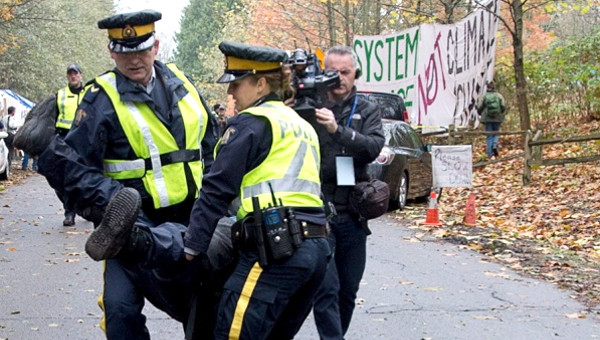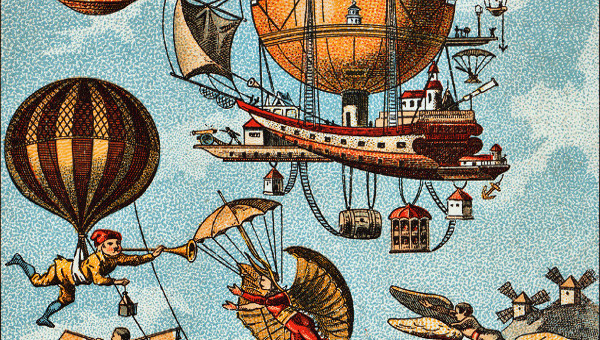In one of his last books Eric Hobsbawm argued that the conflict between capitalism and communism determined the course of the twentieth century (thus the title, The Age of Extremes: the Short Twentieth Century, 1914-1991). This confrontation of socioeconomic ideologies without doubt dominated European and global history, especially after 1945.

As I argue in my new book, another confrontation that determined the course of the twentieth century was authoritarianism versus democracy. The capitalism-communism conflict seems but a moment of history for people in their forties and younger. However, the danger of a rising authoritarian wave is as imminent in the twenty-first century as it was in the twentieth. Understanding that danger requires a brief excursion back to the last century.
As the one hundredth anniversary of the beginning of World War I approaches, one encounters rather strained attempts to compare the current global balance of forces to that in Europe in 1914. I recently visited several countries of Southeast Asia and a different comparison struck me, the similarities between now and the 1930s, weak democracies and strong dictatorships. This comparison “jumped off the page” after a week in Bangkok followed by a several days in Hanoi. This journey went from a country with weak and faltering formal democratic institutions to an apparently stable one with an authoritarian regime (bordering on a country with a considerably more brutal dictatorship, China).
Contest Between Authoritarian and Democratic Visions
In 1930 in most countries of Europe the contest between authoritarian and democratic visions of society dominated the political struggle. The exceptions were Italy where the fascists had already established an extreme version of authoritarian rule, and Britain where a rigid class structure gave stability to superficially democratic institutions. By the middle of the decade capitalist authoritarian regimes were clearly on the rise in Germany and much of central and eastern Europe (e.g., Hungary and Poland), as well as Portugal, with Spain soon to join the anti-democratic camp.
Indeed, among the industrialized countries in the late 1930s in very few did democracy seem the stronger trend. Among the large countries only in the United States did one find an unambiguous shift toward a strengthening of popular participation. Ironically enough it was during the presidency of patrician Franklin D. Roosevelt that trade unions asserted themselves as a major political force (which would not survive much past mid-century).
Now, well into the twenty-first century it is even more difficult to find a major country with vigorous and democratic institutions, certainly not the United States or in Europe. In the United States the confrontation between a well-funded right wing Republican Party and the middle-of-the road Democratic Party dominates politics, one doctrinaire and aggressive, the other muddled and vacillating. The anti-democratic trend is demonstrated by passage of laws restricting the right to vote in Republican controlled states, measures often linked to the racism and xenophobia of the Tea Party. In the White House sits a Democrat apparently unconcerned by a massively intrusive
national security complex. No less disturbing is the apparent free-rein given by Prime Minister Stephen Harper to Canada’s version of the U.S. National Security Administration, the CSEC (Communication Security Establishment Canada).
In Europe anti-democratic trends are if anything stronger. Britain probably has the most extensive video surveillance network in Europe (see
the recent article in The Guardian), as well as legal restrictions on the right of assembly, designed to reduce public protests (as we find in Spain). In addition, the Conservative-dominated Coalition government’s brutal attack on poor households receiving social support in effect legalizes violation of civil rights, as well as common decency. Surveillance, attacks on the poor and the government fanning fears of immigrants combine to make a potent anti-democratic package.
On the continent pre-existing authoritarian tendencies enjoyed a quantum leap under the EU-wide neoliberal austerity regime fostered by the German government under the cover of the European Commission. The unelected governments in Greece (2011-2012) and Italy (2011-2013) represent the most obvious and shocking examples of the authoritarian trend. Much more serious in the long term is the EU fiscal compact (officially named the Treaty on Stability, Coordination and Governance in the Economic and Monetary Union).
Surrendering Sovereignty
This treaty, which came into effect at the beginning of 2013, severely limits the authority of national parliaments to set fiscal policy. The treaty and additional measures demanded by the German government remove fiscal policy from public control, with monetary policy already in the hands of the European Central Bank and beyond national accountability. This process in which major decisions are taken away from the electorate fundamentally undermines public faith in the democratic process. The rise of neo-fascist groups with an extra-parliamentary agenda such as the New Dawn in Greece should come as no surprise.
Almost exactly a year ago, Peer Steinbrueck, then the German Social Democratic Party’s candidate for chancellor, spoke at the German Embassy in London. In his speech he proposed that the European Commission should have the power to veto national budgets if they exceed the guidelines of the fiscal pack.
In the question period I suggested that such a veto would violate the principle that the governed should be able to hold their governments accountable. In reply Germany’s leading Social Democrat said that fiscal stability required countries to surrender some of their sovereignty. In other words, the goal of “fiscal stability” requires the citizens of Europe to surrender their basic democratic right to hold a government responsible for its economic policies. This is the fulfillment of the neoliberal agenda of removing from democratic control all major economic policies.
The authoritarian trend in the United States and Europe is obvious. What is its source in these countries? In the 1920s and 1930s the rise of authoritarian regimes followed the wide-spread public perception that unregulated capitalism resulted in spectacular disasters. These disasters included the most catastrophic war in human history, soon followed by the most devastating economic crisis the world had ever known. Many on both the Left and the Right judged “bourgeois democracy” as degenerate and dysfunctional. In Russia the rejection of capitalism took the form of an attempt to create a governance system in the interests of the working-class and peasantry. The hope for popular democracy quickly collapsed as the putative workers’ state transformed into thinly disguised authoritarian rule.
Far worse, in Italy and Germany the discrediting of liberal capitalism led to unabashed dictatorships that made no pretence of their authoritarian nature. The business elites constructed these fascist regimes to maintain the rule of capital in face of powerful labour movements. The regimes proved appallingly successful not only in crushing the labour movement but in rolling back the principles of the Enlightenment. Destruction of these savage regimes required a war even more catastrophic than the 1914-1918 conflict.
“The neoliberal inspired market deregulation over the last thirty years has been the destroyer of freedom. The most obvious mechanism by which this destruction occurs is the weakening of the power of trade unions and other popular organizations.”
The current authoritarian tide in European and the United States also comes from the business elites, but in this case driven by the ideology of neoliberalism not fascism.1 Neoliberalism pretentiously claims to be the guarantor of freedom – “free markets, free men” was the title of Milton Friedman’s infamous London lecture to adoring businessmen in 1974. Reality is quite the contrary. The neoliberal inspired market deregulation over the last thirty years has been the destroyer of freedom. The most obvious mechanism by which this destruction occurs is the weakening of the power of trade unions and other popular organizations. Parallel to that weakening has been rise and consolidation of the power of the financial capital to control the media, political debate and elections themselves.
Writing in 1947 in the foremost economic journal of the time, The Economic Journal, the British economist K. W. Rothschild succinctly summarized the consequences of unregulated capitalism,
“…[W]hen we enter the field of rivalry between [corporate] giants, the traditional separation of the political from the economic can no longer be maintained… Fascism…has been largely brought into power by this very struggle in an attempt of the most powerful oligopolists to strengthen, through political action, their position in the labour market and vis-à-vis their smaller competitors, and finally to strike out in order to change the world market situation in their favour.”
The deregulation of financial capital threatens to bring us back to capitalist authoritarianism that flourished in the 1920s and 1930s. But this time it gathers strength with no strong popular movement in Canada, the United States or any European country to challenge it. The absence of a movement with the strength to challenge the power of unregulated capital, plus a mainstream media supportive of neoliberalism make Open Democracy and other progressive news platforms essential to the anti-authoritarian struggle. •





